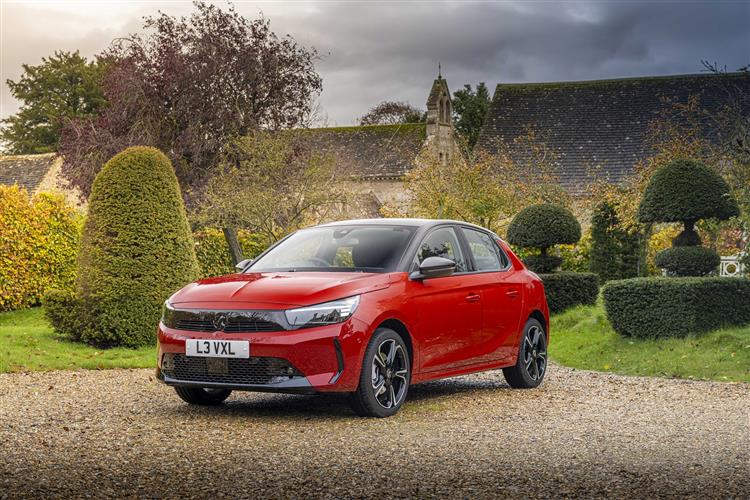HY-ER ASPIRATIONS (some text hidden) --NONE--
By Jonathan Crouch
With a little Gallic assistance, Vauxhall offers full Hybrid power in its Corsa supermini to make sure it stays relevant to buyers in this crowded market. Jonathan Crouch takes a look.
Ten Second Reviewword count: 47
Your ideal Vauxhall Corsa may well be this one, the Corsa Hybrid. On paper, it gives you the best compromise between conventional version and the full-electric model. But there's quite a price to pay for that. Still, there's a lot of clever technology here to justify it.
Backgroundword count: 125
It's taken a long time for hybrid power to reach the humble Vauxhall Corsa, but the timing of this petrol electric variant's arrival could hardly have been better. Sales of EV models like the Corsa Electric are faltering with customer concerns over high pricing and an under-funded public charging infrastructure. The idea of an electrified version of this model that doesn't have to be plugged in should go down well. The current sales leader in this space is Toyota's Yaris, but supermini customers seeking a full-hybrid in this class are also considering alternatives like the Honda Jazz and the more affordable Renault Clio E-Tech full hybrid. So where does this Corsa Hybrid fit into this segment - and how competitive can it be? Let's see.
Driving Experienceword count: 200
Like the Yaris (but unlike the Clio and the Jazz), the Hybrid engine in this Corsa is available in two states of tune - 100hp or 136hp. The 48V system is based around the Corsa's familiar 1.2-litre three cylinder petrol engine mated to a bespoke 6-speed e-DCT6 dual clutch auto transmission. Bespoke because that gearbox's casing houses the DC inverter, the Engine Control Unit and a little 28hp electric motor powered by a tiny battery secreted beneath the front passenger seat. On the move, the petrol engine and the electric motor can operate together - or separately. And, unlike with a mild hybrid system like that fitted to say, a Fiesta, here the car can be driven for short urban distances (under 18mph) on electric power alone. The motor also assists the engine under acceleration - such as from standstill to 62mph, which takes 10.7s for the 100PS model or 8.6s for the 136PS version. Mind you, those figures are only 0.1s faster than the equivalent un-electrified derivative. During deceleration, the petrol engine stops and the e-motor acts as a generator to recharge the Hybrid system's 48V battery. The battery also stores the energy recuperated by the regenerative braking system.
To see the full road test text contact us on 0330 0020 227
Pictures (high res disabled)

.jpg)
|
.jpg)
|
.jpg)
| |||
.jpg)
|
.jpg)
|
Statistics (subset of data only)
Min |
Max |
|
Price: |
£22,890.00 (At 2 Feb 2024) |
£29,020.00 (At 2 Feb 2024) |
CO2 (g/km): |
102 |
106 |
Max Speed (mph): |
116 |
|
Combined Mpg: |
62.8 |
|
Length (mm): |
4060 |
|
Width (mm): |
1765 |
|
Height (mm): |
1433 |
|
Boot Capacity (l): |
309 |
|
Scoring (subset of scores)
Category: Hybrid, Plug-in, Electric & Hydrogen
| Performance | |
| Handling | |
| Comfort | |
| Space | |
| Styling, Build, Value, Equipment, Depreciation, Handling, Insurance and Total scores are available with our full data feed. | |



